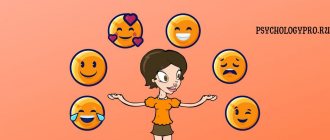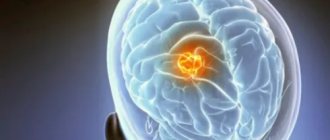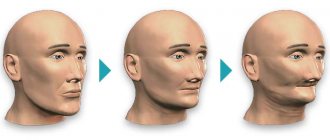People often wonder what human intelligence is and how it relates to psychology. Therefore, in this article I will explain in detail what is meant by this term.
This is a complex of abilities to learn, understand, solve complex issues and find a way out of difficult situations, as well as the ability to think. Society greatly respects this quality and recognizes its value, but does not always characterize it correctly. For many, the traits of an intellectual are encyclopedic knowledge and excellent memory. In fact, they are associated with erudition.
Definition of Intelligence
It represents something of a taste for ideas. The chain is as follows: thinking processes the life experience we acquire and accumulates knowledge, with their help new ideas, discoveries, inventions, and innovations are born. This is a thought process that is impossible without abilities. Some are given more of them, some have less. This is human intelligence. If its level is low, there will be little benefit from knowledge. Readiness and awareness are just tools that help it manifest itself. Having a lot of knowledge without the ability to use it is the same as playing the violin without talent.
What characterize intellectual skills:
- Memory;
- skills of analysis, structuring information and forecasting;
- logic;
- attentiveness;
- zeal;
- reproduction;
- flexibility, depth, inquisitiveness of mind;
- curiosity.
Types
Until now, there is no unified classification of intelligence. Only one scientist, Howard Gardner, put forward the theory of 8 varieties:
- Spatial, most developed among drivers and designers. Characterizes the ability to navigate the terrain. If you are having difficulty building a route, this is what you need to develop. This can be done by solving problems with finding a way out, painting and sculpting, and tracking the movement of objects.
- Kinesthetic, responsible for the ability to use one’s own body, dexterity, and coordination. Those who have it developed dance and work well. Sports, yoga, and physical activity will help in its development.
- Musical, gives its owners a sense of rhythm, hearing and understanding. The more a person immerses himself in music, dancing, listening, singing, the more he will improve this type of intelligence.
- Linguistic, responsible for written and oral speech, develops when studying foreign languages, reading, communicating with people.
- Logical, allows you to feel like a fish in water among symbols, signs and diagrams. Will be an excellent companion for a scientist and inventor. To improve logic, you need to solve problems, puzzles and puzzles, and build chains.
- Interpersonal, also known as social, is close to empathy. This is the ability to feel and understand people, ease in building relationships, sociability and communication. It is important for creating a family and forming friendships. He is trained at seminars, trainings, and group games.
- Emotional is needed to understand yourself, to live in harmony with your inner world. It is especially difficult to develop, therefore it requires the use of spiritual practices: meditation, purification, reflection.
- Naturalistic is associated with worldview, natural phenomena, and physical laws.
Any type of intelligence in psychology is based on the development of personality traits and determines its individuality.
Levels
Levels:
- Stimulating and productive. The mental activity of an individual depends on the manifestations of external factors. At this level, intellectual activity is limited to the path initially found or set by someone. A person can solve problems, but they are not connected.
- Heuristic level. Spontaneous cognitive activity, with the help of which various patterns are discovered. At this level, a person can create a single picture from disparate problems and phenomena, find commonality in them in order to identify unknown patterns.
- Creative. This is the highest level of intellectual activity. Finding connections in different phenomena becomes a big problem that requires deep analysis to establish the essence of things.
Structure
The processes in our head are so complex and diverse that they are not subject to structuring according to several criteria. Comparing a talented mathematician with a brilliant composer is difficult and unproductive.
Psychologist Daria Milai
Make an appointment
J.P. Guilford presented a three-dimensional cubic model in which he identified 120 mental abilities (memory, analysis, assessment, expression of thoughts, etc.) and structured them into three components:
- Content (what we think about).
- Operation (as we think).
- Result (what the process leads to).
Some people are able to quickly draw conclusions and make decisions, others are close to flashes of insight with an instant understanding of the essence (remember Archimedes with his “eureka”), others are fixated on the assumption that came first. An intellectually developed person can live happily all his life, while thinking haphazardly and impulsively, without going beyond standards and stereotypes.
IQ values
You're no doubt wondering what specific values mean. So:
The average IQ is 90-110. These indicators are reached by approximately half of the population. A value of more than 110 is considered above average; about ¼ of the population has it. The coefficient is more than 130, i.e. Only about 2% of the population show a level above average. An IQ below 70 is one of the characteristics of mental retardation.
The highest IQ value is achieved at the age of 16-30 years. Inheritance has a big influence on IQ.
And one more note. As most people know, IQ itself is not a predictor of a person's quality of life. Even people with average or below average IQ can lead happy and successful lives, and vice versa.
Main function
The value of mental abilities is that they help you think productively. Thanks to them people:
- self-realization and self-affirmation;
- achieve success and demonstrate talent;
- master new skills and gain knowledge;
- occupy a position in society.
The list can be continued by the fact that intelligence and insight from ancient times to the present day help to survive, get settled, start a family and raise children. Therefore, the main thing for which they are responsible is the ability to integrate into society, adapt and find their place, and to do this profitably and quickly. The mind protects us from dangers. Levels of intelligence in psychology are divided into:
- Short. People in this category are weak and dependent, passive and submissive. They definitely need care and support, the world around them seems complex and aggressive, and the manifestation of initiative and their own talents is meaningless and time-consuming.
- Average. Characteristic of those who have good mental abilities, independence and activity. They easily adapt to society, are not afraid of everyday problems, apply their knowledge and skills, find a social circle and the opportunity to express themselves.
- High. A special caste of “revolutionaries and wizards”, which is above adapting to the world. It is easier and clearer for them to change their environment to suit themselves than to change their own values. Of course, they are a minority.
Interaction between the individual and society in spirituality
Knowledge and intelligence, as well as the ability to use them, form individual consciousness, but in themselves do not yet become the key to harmonious interaction with society. Social and civic experience become part of people's inner life only if they accept the moral and governmental foundations of this world. Only they are able to adequately evaluate their actions and activities in general.
The consciousness of an individual in a social environment is constantly controlled by reason, which consists in the ability to analyze and balance one’s achievements with intentions, which can be much broader than specific actions and are not always able to rely on generally accepted norms of a social group or society as a whole. Life in society forces people to be guided by its laws. This can cause a conflict between the individual and his own interests and needs, and from time to time push him to selfish actions that are contrary to generally accepted morality. In this case, the rule-breaker risks becoming an outcast and being ostracized by people.
The other side of this social coin is patriotism - an emotional and moral state that pushes a person to get closer to society, causing a willingness to live by its interests, to limit their material and spiritual needs for the sake of goals that seem more important than personal ones.
The sensory-emotional factor here becomes a consequence of the already formed spiritual life of the individual, who, having realized the significance of the knowledge acquired in the process of education and upbringing about society, its history, moral and religious norms, mobilizes all her intellectual baggage for the benefit of this society and thereby becomes socially significant , and not just a person in himself.
Individual characteristics
The traditional concept in psychology distinguishes the classification into three types of intelligence:
- Innate, which cannot be learned and instilled.
- Social-behavioral, which can be traced in actions and statements
- Assessable, it is measurable through psychological tests.
People differ not only in the presence of abilities, but also in their qualitative characteristics, a set that is characteristic of the individual. It is impossible to say unequivocally that a talented artist will be the same in dancing. But the fact that differences in the level of mental activity are noticeable almost from birth is possible.
Face-to-face consultation
What are the features and advantages of face-to-face consultation?
Find out more
Skype consultation
What are the features and benefits of Skype consultations?
Find out more
If a child shows curiosity about the world around him, causes a lot of trouble by unwinding toilet paper, knocking over food, or dragging a domestic cat by the tail - rest assured, this is a sign of high intelligence. But the quiet one, with whom, according to the parents, they were lucky, is unlikely to stand out with a high level of IQ. To evaluate it correctly, assessment techniques are used in the form of tests with different tasks for different age categories.
What does intellectual level depend on?
We receive a certain set of qualities from birth, by inheritance. It is impossible to influence them. But we are talking about only half of the skills. The other is acquired during growing up and depends not only on natural data: the mobility of neurons, reaction speed, the nature of the nervous system, but also on the social environment in which the personality develops.
The emotional connection between the child and mother is of particular importance for the development of mental abilities. Children who are surrounded by love, affection and care show better results on intelligence assessment tests.
Age differences
Measuring intelligence in the same person at different ages will give interrelated results. That is, if a child at 5 years old was distinguished by intelligence and intelligence, indicators of brain activity. most likely to remain high at 20 and 40 years of age. However, a 100% guarantee cannot be given.
For example, Pascal, being 13 years old, participated in meetings of the academic council on mathematics, and Einstein at the age of 15 was expelled from school for poor performance.
Comparing the indicators of different age groups, we will see certain patterns:
- the coefficient increases until the age of 17-18, slowing down during transition periods when the brain is “busy” solving other issues;
- after 20 years, development slows down significantly;
- logical, analytical and arithmetic potential is revealed by the age of 30;
- medicine is easier at the age of 40-45, psychology after 50;
- All years are submissive to art; researchers have not established restrictions.
An interesting fact is that there is no obligatory regression of intellectual activity. Of course, in older people, physiological processes affecting the cerebral cortex are disrupted, but a person gains important life experience that helps him apply the knowledge that he has accumulated.
Gender differences
Although the stereotype about the huge difference in mental abilities of the stronger and weaker sex is constantly discussed in society, no one has yet been able to scientifically substantiate the existence of an “intellectual gap.” Indeed, the average level of intelligence is approximately the same for men and women. The difference is observed in the following aspects:
- girls under 15 develop much faster than boys;
- Males are better able to shine with mathematical talents, while women are distinguished by the development of speech, emotional activity and creative skills;
- The priority of the fair half is non-standard thinking.
Genius
In some cases, when a person exhibits high intellectual activity in creative activity, it may be accompanied by what, based on certain characteristics, is perceived as genius.
If we understand the meaning of the mechanisms that form the basis of the psyche and determine intellectual potential, as well as the essence of this potential itself, we can talk about an extreme state of intellectual creativity, i.e. about genius. As a rule, genius is the degree of intellectual potential that contributes to the creation of extraordinary and particularly outstanding creative results.
The state of genius is distinguished by its characteristics of mental as well as physiological organization. And these characteristics are such that without painstaking and quite serious work, you simply shouldn’t expect any brilliant ideas and results. Among these characteristics are:
- The required level of energy and energy, depending, among other things, on the characteristics of blood movement through the vessels, metabolism and ventilation of the lungs. If they do not meet certain parameters, the human body will not have the opportunity to fully develop creative skills.
- Regardless of the level of energy and energy, a person must have a motivating force - something that will constantly push him to action and force him to stick to the chosen direction. Otherwise, a person will not even lift a finger, because he will not have any goal.
If these two characteristics are present, and their combination turns out to be suitable, a person becomes dissatisfied with the current state of affairs, which requires conscious volitional efforts to change. And when the understanding of a particular situation accumulates and reaches a critical point, that same insight occurs, called genius. If a person lies on the couch and looks at the ceiling, he better not count on any revelations.
What is genius? First of all, this is a constant stay in the process of comprehending some creative idea, incessant brain activity that prevails over everything else. It does not stop even when a person is sleeping, because it is of such great importance to him that it receives nourishment from most existing areas of perception.
This activity does not appear on its own or out of nowhere. This is a consequence of painstaking study and thinking about a certain problem or situation that plays the most important, almost the main role in a person’s life (one of such situations may be a state of love, when it is impossible to think about anything else).
The conclusion follows from this: in order to do truly brilliant things, it is not at all necessary to be a natural genius or to inherit some genetic traits from your ancestors. The state of genius can be achieved artificially by “getting sick” with something completely and irrevocably. This “disease” activates maximum intellectual potential, thereby leading to a state of creative genius.
We are deeply convinced that every person should develop thinking and intelligence. This should not be influenced by the environment, circumstances, or any other reasons. The only thing that should have an impact is a sincere desire to develop, become better and smarter. We wish you to have this desire, never stop at anything and, of course, collect as much information as possible about the work of intelligence and its features.
Let our article serve as another coin to your knowledge bank. We sincerely wish you good luck and achieving new heights!
We also recommend reading:
- Storytelling
- Deep Learning: What is the essence of the deep learning method?
- Wechsler test
- Erudition and intelligence: why they only work together
- What You May Not Know About Intelligence
- Gardner's Theory of Multiple Intelligences
- General Intelligence Factor
- Intelligence and its development: several recommendations
- To develop or to degrade?
- How to become smarter: 4 types of intelligence according to Stephen Covey
- Cattell-Horn-Carroll theory
Key words: 1LLL, 1Cognitive science
Diagnostics
Intelligence studies are carried out on the basis of various methods and techniques. All of them are based on two principles: testing and experimentation. For example, logical thinking and pattern identification skills are revealed using Raven's progressive matrices. Amthauer tests specialize in orientation in professional activities. Both the first and second technologies are developed for people of different ages. To evaluate a child, the Goodenough-Harris method is suitable, which gives an assessment based on a child’s drawing. All these developments are decades old, they are unified and give average readings.
Ask a question
History of the study
The question of studying intellectual abilities arose especially acutely for scientists in the 19th century. By 1905, French scientists T. Simon and A. Binet were able to develop the first tests that were designed to assess the level of mental abilities in children aged 3–13 years. The creators of the texts themselves considered intelligence as a level of development of mental health inherent in a certain age. The assessment was based on the number of correct answers and their ratio to errors.
The next breakthrough in this area occurred in 1912. Then the German psychologist W. Stern proposed making assessments of the level of mental development by calculating the IQ. He called them the relationship between the chronological and mental age of the child.
The teachings of V. Stern were continued by L. Theremin. He adapted the proposed coefficient for US residents, brought it under the Binet-Simon scale, for which he came up with some changes to modify it. Thanks to the work of L. Theremin, a new scale for assessing intelligence was developed.
The first full-fledged IQ test was proposed by D. Wexler. He proposed a detailed classification of levels of development of mental abilities, which was based on the frequency of occurrence of the indicator:
- intellectual decline - up to 69;
- borderline level - from 70 to 79;
- reduced rate - from 80 to 89;
- average level - from 90 to 109;
- a good indicator is from 110 to 119;
- high level - from 120 to 129;
- very high level - over 130.
Over time, the scale was refined and changed depending on current realities. More informative tests were compiled for it.
Recommendations for increasing the coefficient
5 practical tips for training your brain activity and increasing your IQ that you can use every day:
- Challenge your brain, solve math problems, learn foreign languages, learn to play a musical instrument.
- Talk to educated people. By having a conversation and understanding the way smart people think, you will benefit for yourself.
- Play computer games that require strategy development and train your reactions.
- Read books, it develops vocabulary and erudition.
- Play sports, lead a healthy lifestyle.
Emotional intellect
The concept of IQ includes the ability to distinguish between emotions, understand what motivates other people, what they want, what they strive for and what they achieve. It is he who helps manage his own and other people’s feelings to achieve goals.
Our mind can be roughly divided into two halves: rational, which is responsible for cognition, thoughts, conclusions, and impulsive, devoid of logic, but no less influential. Ideally, we should balance and make friends between these parts.
The IQ component is character. Emotional appearance includes skills:
- believe in yourself;
- sympathize;
- control emotions;
- be able to distract yourself from unpleasant experiences;
- strive for a goal;
- find motivation.
Social intelligence
It helps to correctly interpret the behavior of others and build relationships between people. The better it is developed, the more adapted you are to life in society. If this part of mental activity is highly developed, it will not be difficult for you to predict the reaction of your interlocutor or immediately make a judgment about someone without thinking for a minute. It is more a gift of accommodation than of deep and thoughtful understanding.









